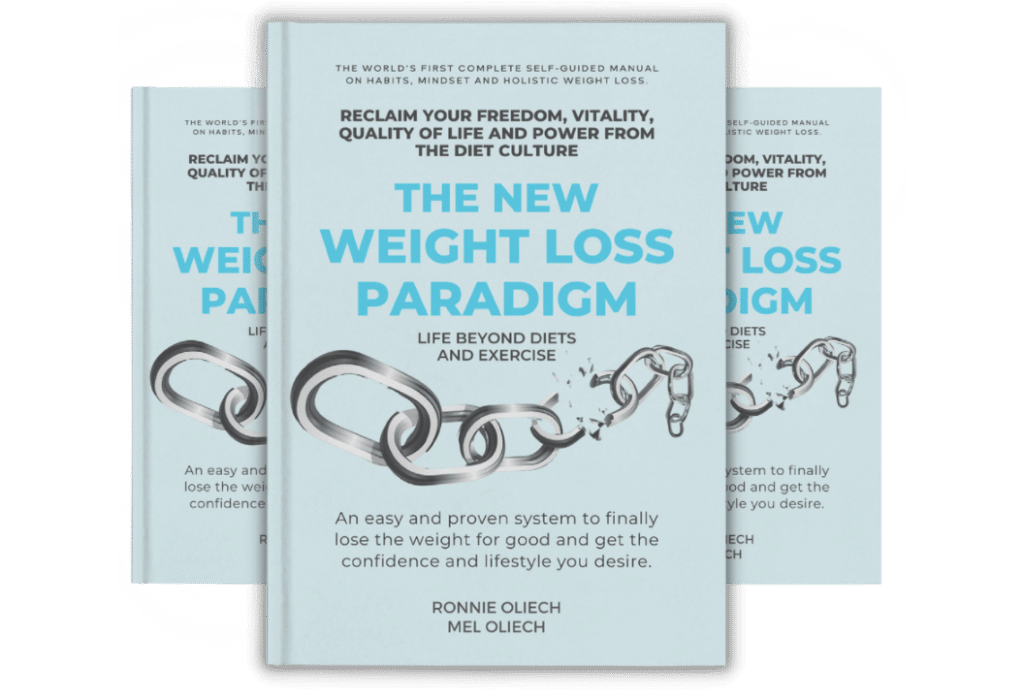You know how it goes. You had every intention of getting up early and going to the gym, but when the alarm went off, you pressed snooze instead, because you were just too tired. To alleviate your guilt, you promise yourself that you’ll get there tomorrow. When the alarm goes off again, you feel groggy and stumble into the shower, hoping it will wake you up.
You start the day with a coffee knowing that the caffeine will kick in soon. On the way to work, you grab another one knowing that unless you do, you won’t be able to concentrate properly. You end up working through lunch snacking on an apple and some crackers, but by mid-afternoon you feel the familiar energy slump. You head to the vending machine for a chocolate bar and go and make yourself another coffee as this is the only thing that helps you make it through the afternoon. By the time you get home from work, you’re completely exhausted and the thought of cooking for the family is enough to make you cry.
You just have no energy left, so you order takeaway, put on your pyjamas and promise yourself an early night. Conversations around the dinner table are half-hearted and you’re not fully engaged with your family because all you can think about is getting to bed. When you finally get there, you spend the next 45 minutes scrolling through your social media feed, until you can barely keep your eyes open. When setting your alarm, you briefly think about going to the gym the next day, but decide against it. You’ll get there when you don’t feel so tired all the time.
Low energy is a problem that many people have.
Most of the time people think having low energy is normal — a byproduct of living a busy life — and they accept that each day will always be a struggle.
But it doesn’t have to be this way.
In this blog, we’re going to look at the reasons why you may be low on energy and what you can do about it.
Working long hours
A lot of people lack energy because they work long hours and don’t have enough time to relax or do other things in their life. One reason people do this is because it distracts them from other things that are going on in their life that they don’t want to deal with. It may be a bad relationship, loneliness, a sick parent, difficulties with their kids, or addressing issues they’re not ready to address. The other reason people work long hours is to earn more money, and the reason they do this is because they value money more than their health. While there is nothing wrong with earning money, there is a problem when it takes priority over your health. We explain this in more detail in our blog How your values in life determine your weight.
Solution: Stop saying ‘yes’ to working long hours and start carving out time for other things in your life, such as healthy cooking, sleep and leisure time.
Sedentary lifestyle
It may sound odd but not getting any movement in your day is an energy zapper. Most of us have sedentary lifestyles — jobs where we sit, travelling while we sit, eating while we sit. And then our downtime is usually more sitting, either watching TV or chilling on the couch. The human body was designed to move every day, not to sit all day. Lack of movement has been shown to reduce energy levels. The good news is that you don’t need to work out every day, you just need to move. Going for a walk, doing yoga or even simple stretching can help increase your energy levels.
Solution: Add more movement into your day and aim to move every day.
Exercising too much
While regular movement and structured exercise are important, you can do too much. The truth is that we only need to spend 3% of our time exercising to lose weight. However, many people who are trying to shift the kilos often ramp up the exercise in an attempt to burn calories. This extra calorie expenditure can leave you feeling tired and lethargic, especially if you’re doing too much exercise and not eating enough to support your exercise regimen. To learn more about exercise read our blog The truth the fitness industry won’t tell you about exercise.
Solution: Avoid excessive exercise by spending no more than 3% of your week exercising.
Not eating enough
Another key reason people lack energy is that they don’t eat enough food. The diet industry has taught us that to lose weight we need to eat less. However, doing so is a recipe for disaster. We explain this in more detail in our blog Why calorie deficit leads to weight gain. A key mistake many people make is to cut calories AND increase exercise at the same time, which is typical behaviour of diet mindset. While this approach may seem okay for a week or two, sooner or later you’ll suffer from fatigue and low energy levels, which will only lead to burnout and injury. The truth is that you need to eat more than you think if you’re participating in a regular exercise program. You can find out more by reading our blog What are the best workout meals?
Solution: Eat enough food to support your activity levels and avoid restricting food or fasting.
Poor food choices and compromised nutrition
To lose weight many people cut calories by cutting out food groups, restricting food, or even fasting. While on paper this may sound like a good approach, doing so only increases your likelihood of bingeing. When you binge you usually reach for foods that are high in sugar, fat and calories, none of which provide nutrition. If you don’t feed your body the nutrients it requires, one of the many problems you can expect is low energy. It’s like not filling your petrol tank with fuel, and then wondering why your car won’t go! For optimal health, energy and weight loss results, you need to eat a wide range of foods. You can find out what they are in our blog The 14 best foods to lose weight.
Solution: Eat a wide range of foods from ALL food groups to keep your body in prime condition and energy levels at their best.
Poor sleep
This might sound obvious but not getting enough sleep, or sleeping poorly can cause low energy levels. Sleep is essential for the human body, not just to restore energy levels but to help you lose weight. We cover this in our blog Sleep and weight loss: the unexpected connection. If you suffer from poor sleep, despite getting to bed at a decent time each night, you might like to read our blog Top tips to improve your sleep. Improving your sleep will go a long way to waking up feeling refreshed and energetic each day.
Solution: Prioritise your sleep and aim for at least 7 hours each night.
Stress
Stress impacts so many areas of your life, including your energy levels. Stress can come in many forms — whether it’s being too busy, worrying about what others think, trying to control everything, or trying to keep everyone happy. When under stress, your body goes into flight or fight mode which increases cortisol production. Along with making it hard to lose weight, too much cortisol takes a toll on your body and can leave you feeling exhausted. It also interferes with your sleep and makes it more likely that you’ll turn to alcohol, which also impacts your sleep. To find out more about stress and its effect, read our blog How stress and weight gain are linked.
Solution: Reduce stress where you can and learn how to manage it. One way is to learn how to let go of control. You can read more about that here.
Alcohol
Alcohol has a sedative effect which can make you feel drowsy. While you may think that having a few drinks before bedtime will help you get a better nights’ sleep, the opposite is true. Alcohol also has a stimulating effect which kicks in during the night. This can cause you to wake during the night and have difficulty falling back to sleep. Of course, when you don’t sleep well, you’re more likely to lack energy. To learn how alcohol impacts your weight, read our blog Alcohol and weight gain: 9 ways drinking affects your body shape.
Solution: Go easy on alcohol.
Too much screen time
If you spend too much time on screens — whether it be TV or social media — your energy levels can be compromised. Screen time decreases melatonin levels, which are vital in regulating your sleep. Insufficient melatonin levels can lead to fatigue and lack of energy. Similarly, screen time also increases cortisol levels which leads to increased stress, and increased fatigue. And if that’s not enough screens suck up a lot of time, meaning that you’re less likely to get enough sleep each night.
Solution: Set boundaries around how much time you spend watching TV and scrolling through social media.
Toxic relationships
Believe it or not, the people you spend time with can also impact your energy levels. If you’re continually hanging around toxic people — those who gossip, disrespect others, continually complain or find fault in situations or other people, and always take from others instead of giving — then your energy levels are likely to suffer. If you’re experiencing low energy, take a good look at the people you’re hanging around with. Do they lift you and encourage you? Or do they drain your energy levels?
Solution: Surround yourself with people who inspire, challenge and empower you to be your best self, not enable you to engage in toxic behaviours. You can read more about this here.
Not doing things that spark your soul
When was the last time that you did something that sparked your soul? Constantly putting your needs last, and prioritising other people’s happiness will mean you won’t have time to do the things that inspire you or make you feel alive. Similarly, if you’re living from a place of fear because you’re scared of being judged, you will avoid doing things that bring you pleasure like going to the beach, swimming, and playing with your kids.
Solution: Make time to do the things that light you up and learn to let go of fears by confronting them. Tackling fear head-on is the only way to overcome it.
Not living a fulfilled life
Most people fail to live a fulfilled life because they’re too scared. Fear of being judged and fear of failure keep most people living a life of complacency instead of chasing after their dreams and going after what they really want. People who don’t live a fulfilled life often value the wrong things — usually money and status. And while there is nothing wrong with having money or status, chasing these things at the expense of everything else is a problem which will leave you feeling empty, tired and lethargic.
Solution: Commit to living a fulfilled life and chase after the things that mean something to you, instead of trying to gain other people’s approval by chasing money and status. You can read more about that in our blog How your values in life determine your weight.
Not putting your health first
If you’re lacking in energy, ask yourself if you’re putting your health first? Chances are that you’re not. When you value your health, you will engage in behaviours that will automatically lead to better energy levels (e.g. sleep, eating well, moving regularly, avoiding toxic people, etc.) The truth is that unless you value your health, you’re probably always going to be lacking the energy you crave.
Solution: Prioritise looking after all aspects of your health — physical, emotional and mental — and you’ll soon find the energy that you’re missing.
If you’re sick of living with low energy and are craving a life where you can feel alive, confident and fulfilled, we can help you. All you need to do is contact us.


















